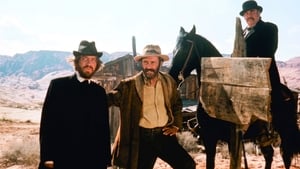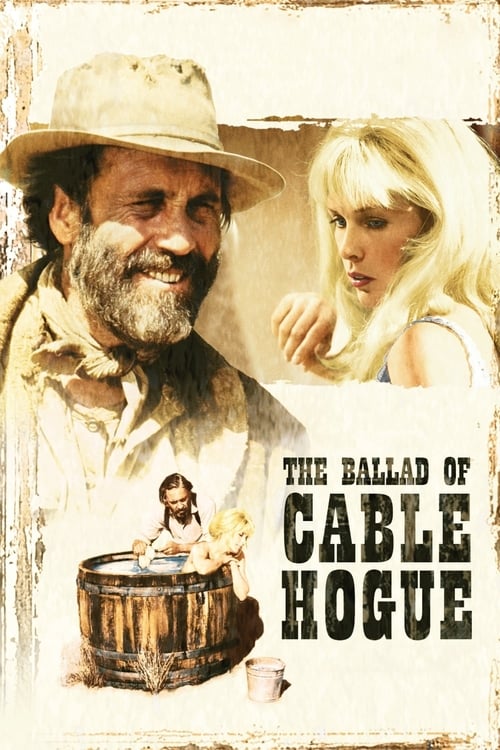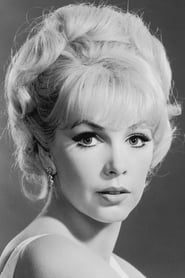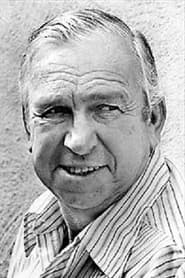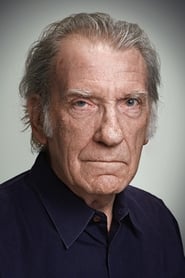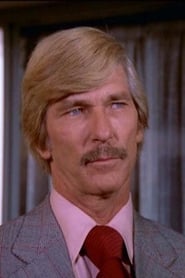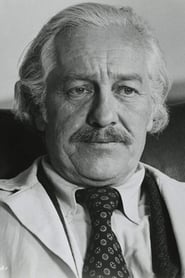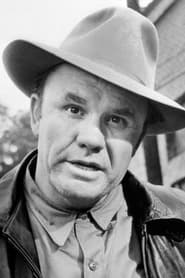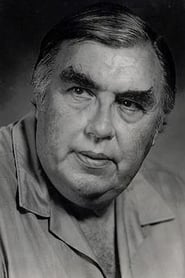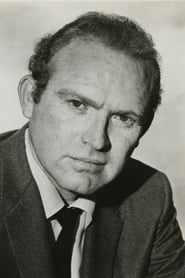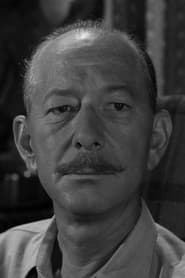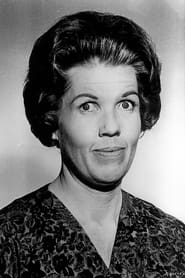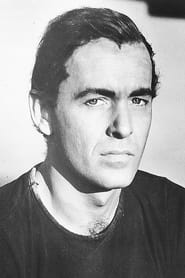Cast
View AllJason Robards
as Cable Hogue
Stella Stevens
as Hildy
Slim Pickens
as Ben Fairchild
David Warner
as Joshua
L.Q. Jones
as Taggart
Strother Martin
as Bowen
R.G. Armstrong
as Quittner
Peter Whitney
as Cushing
Gene Evans
as Clete
William Mims
as Jensen
Susan O'Connell
as Claudia
Vaughn Taylor
as Powell
Kathleen Freeman
as Mrs. Jensen
Max Evans
as Webb Seely
James Anderson
as Preacher
Crew
Director
- Sam Peckinpah
Writer
- Edmund Penney
- John Crawford
- Gordon T. Dawson
Producer
- Sam Peckinpah
Reviews
John Chard
Peckinpah's lyrical vision of the West provides humour and comfort to director and viewer alike.
The Ballad Of Cable Hogue sees Sam Peckinpah in jolly form. There is nothing here to trouble the censors, a bit of violence here and there - and some nasty human traits seam through the story, but this is purely a funny and touching movie that again deals with a Peckinpah fave theme of the Old West passing. Only difference is here he has his tongue firmly in cheek as he observes the thirst for finance sweeping across the country.
Cable Hogue is a prospector left for dead in the desert by his two double-crossing partners Bowen & Taggart. Wandering across the desert talking to god, Hogue collapses during a sandstorm and finds mud on his boot, after digging down for a while he finds the miracle of water (though Hogue badly misspells this on his advertisement). An encounter with preacher Joshua convinces Hogue to go patent his spring and make a killing selling water to the passing stagecoach trail that runs by his newly found oasis. After striking a deal in the town of Dead Dog, Hogue is set up nicely while into the bargain he falls for gorgeous prostitute Hildy. The film cheekily (just like Hogue) has established itself as a fine piece by the time it takes it's dark turn. It seems that revenge is the new found recipe on the Cable Springs Menu.
This was Sam Peckinpah's favourite film from his own CV, it's his most personal, he apparently saw a lot of himself in Cable Hogue, and with that in mind the film does gain a bit more emotional heart. But strikingly, it's the humour in there that shouldn't be understated, this was the director at one with himself, and the result is lyrical deftness. The cast are great, Jason Robards is wonderful in the title role, Stella Stevens as Hildy shows a fine actress at work. So much so it only makes me lament that she didn't have a great and industrious career post Cable Hogue. Peckinpah faves Strother Martin, L.Q. Jones & Slim Pickens reward their loyal director with impacting shows, while David Warner as the confused sexual predator preacher Joshua practically steals the film with his hedonistic leanings.
Don't go into this film expecting a blood and thunder Western and you will be pleasantly surprised at its thematic heartbeat. Different sort of Peckinpah, but it's also essential Peckinpah. 9/10
May 17, 2017
Thematic Analysis
This high-octane Comedy/Western/Action film balances spectacular sequences with character-driven moments. Unlike many films in the genre, The Ballad of Cable Hogue distinguishes itself through a unique visual style and creative action choreography.
Director Sam Peckinpah brings their distinctive visual style to this film, continuing their exploration of themes seen in their previous works while adding new elements. Their approach to pacing and visual storytelling creates a viewing experience that rewards close attention.
Released in 1970, the film exists within a cultural context that now offers viewers historical perspective on the social issues of that era. Its reception demonstrates the diverse reactions to its artistic choices and its place in cinema history.
Did You Know?
- The production of The Ballad of Cable Hogue took approximately 19 months from pre-production to final cut.
- With a budget of $3.7 million, the film proved to be a financial success, earning back its investment and more.
- The final cut of the film runs for 121 minutes, though the director's initial assembly was reportedly 155 minutes long.
- Some visual effects sequences took up to 6 months to complete.
- The screenplay went through 14 major revisions before the final shooting script was approved.
- The cast underwent specialized training for 3 weeks before filming began.
Historical Context
- In 1970, when this film was released:
- Disco music dominated popular culture.
- Environmental awareness was growing as a social concern.
- The film industry was dominated by major studios, with independent cinema still in its early development.
How This Film Stands Out
While The Ballad of Cable Hogue shares thematic elements with other films in its genre, it distinguishes itself through its unique approach to storytelling, visual style, and character development.
Unlike The Good Heart, which takes a more conventional approach to its subject matter, The Ballad of Cable Hogue subverts genre expectations by exploring its themes with greater nuance.
While films like Rosemary and Rosemary's Daughter explore similar territory, The Ballad of Cable Hogue stands apart through its deeper exploration of its central themes and more complex characterization.
This film's unique contribution to cinema lies in its thoughtful balance of entertainment value and thematic depth, making it a valuable addition to its genre.
Details
- Release Date: March 18, 1970
- Runtime: 2h 1m
- Budget: $3,716,946
- Revenue: $5,000,000
